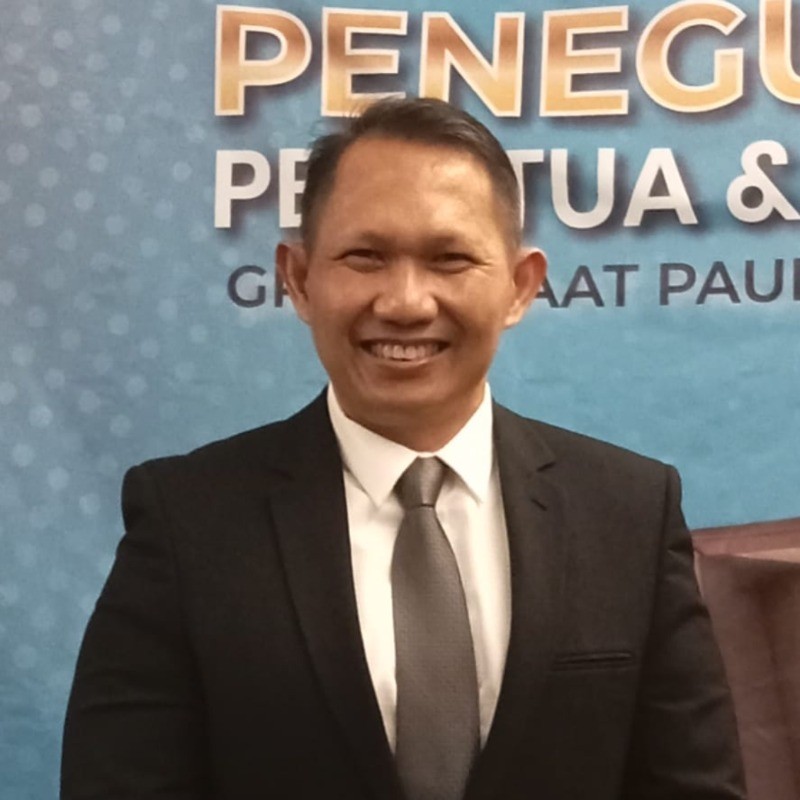Perspective: Strong institutions anchor Indonesia’s palm oil transition

Tallulembang Paulus, Agri-food Sector Leader, Indonesia

Palm oil has long been one of the most debated global commodities—praised for driving economic growth yet criticised for its environmental and social costs.
Indonesia, the largest producer, has over 16 million hectares of plantations and accounts for more than half of global supply. The sector underpins rural livelihoods and national export earnings but remains one of the country’s most complex sustainability challenges. Rapid expansion has contributed to deforestation, degradation, and biodiversity loss, while concerns over land rights remain.
The discussion on sustainable palm oil often centres on certification systems, traceability, and corporate supply chain accountability. These mechanisms are important but address only part of the issue. The fundamental question is how sustainability can function effectively at scale—particularly for the millions of smallholders who manage about 40% of the country’s oil palm area yet remain outside formal systems of knowledge, finance, and market access.
Evidence suggests that lasting progress relies on strong regulation and institutional systems—farmer organisations and local governance structures that can sustain responsible production and inclusive growth well beyond the life of an intervention.
Institutionalisation in practice
This need for stronger local institutions reflects a broader challenge in the global sustainability transition. On one hand, the palm oil sector provides livelihoods for millions; on the other, it contributes to environmental pressures that threaten long-term development. While certification schemes such as the Indonesian Sustainable Palm Oil (ISPO) standard and the EU Deforestation Regulation (EUDR) aim to reconcile these goals, the capacity of smallholders to comply remains limited.
Strengthening institutions may sound abstract, but in practice, it means enabling farmer groups, cooperatives, and associations to function as the economic and governance units of local production systems. These organisations manage record-keeping, coordinate training, oversee collective assets, and serve as credible partners for buyers and banks.
In collaboration with government institutions, private sector actors, and development partners, SNV works on several initiatives across the palm oil sector to embed sustainability within farmer organisations. By linking producer groups to markets, finance, and local policy frameworks, these programmes help turn policy goals into practical mechanisms for systems change.
This approach is advancing in provinces such as North Sumatra, Jambi, and South Sumatra, where several farmer organisations under initiatives such as in BIPOSC, HORAS, and TRACTION have formalised their operations. With support on governance, financial management, and business planning, these groups have improved access to credit and started engaging directly with off-takers.
In Labuhanbatu District, for example, a cooperative under the BIPOSC—a collaboration between SNV and PT Musim Mas—now operates a composting enterprise that produces 130 tonnes of organic fertiliser monthly, creating jobs and reducing reliance on synthetic inputs. However, three years ago, when regenerative agriculture practices were first introduced to the smallholder associations, many farmers were unsure what they involved or why they were important.

We didn’t really understand the importance or benefits of regenerative agriculture at first, but over time, through trainings and learning sessions with others in the association, we came to realise how valuable it is for the future of our soil health.”
Syahrianto - Chief of Labuhanbatu Smallholder Association
A key strength of this institutional approach is that it embeds inclusion and gender equality within local governance structures, rather than addressing them as stand-alone components. Women’s participation in leadership and training has grown significantly: across initiatives, such as HORAS, more than 4,000 smallholders have joined gender awareness sessions, and nearly 900 women have completed financial literacy training.
In Labuhanbatu, women-led enterprises—including aquaculture and food processing—have emerged, particularly during palm replanting cycles when income gaps are most significant. Integrating inclusion within farmer organisations ensures that sustainability efforts address both efficiency and equity, strengthening local resilience.
Linking local practice with national and global policy
The significance of these institutional shifts extends beyond community impact. Strong farmer organisations provide the foundation for meeting evolving market and policy demands. They make certification attainable through organised data collection and traceability, improve creditworthiness for replanting, and enable partnerships with private sector actors seeking deforestation-free supply chains.
This institutional capacity directly supports Indonesia’s national priorities. The government’s Sustainable Palm Oil Roadmap and ISPO certification both aim to formalise smallholder participation in sustainable supply chain, while the EUDR requires traceability data that only organised producer groups can realistically maintain.
Through the Institutional Business Development (IBD) approach, SNV helps farmer organisations become self-reliant, adaptive, and market-ready. This structured process strengthens governance, finance, and leadership, enabling cooperatives to launch viable enterprises and connect with buyers and financial institutions.
Such coordination is essential in a country as vast and decentralised as Indonesia. With more than 190 million hectares of land and highly diverse governance capacities, scaling sustainable practices requires institutions that can adapt local realities while remaining connected to national frameworks.
Sustainability as a structural shift
Indonesia’s palm oil story encapsulates both the challenges and possibilities of implementing sustainability at scale. The sector’s transformation will not hinge on a single policy, certification, or innovation. It will depend on whether institutionalisation becomes central to how the sector functions— linking local realities with global expectations.
As global markets demand greater transparency and deforestation-free sourcing, strong farmer institutions will determine whether smallholders are included in or excluded from the transition. They are what make traceability credible, sustainability affordable, and policy implementation possible.
Institutionalisation, therefore, is not an administrative exercise but a structural shift—one that allows sustainability to move from project-based ambition to systemic reality. In Indonesia, where millions rely on palm oil for their livelihoods, that shift may be the most practical and lasting route to balancing growth, equity, and environmental integrity.
